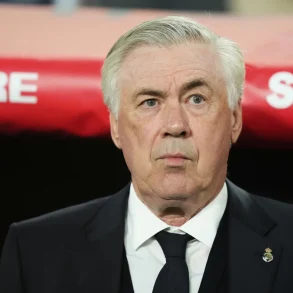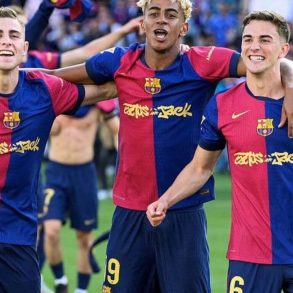Barcelona’s ongoing financial struggles have drawn attention after they only managed to register summer signings Dani Olmo and Pau Victor for the first half of the season under LaLiga’s wage cap regulations. The league initially rejected the club’s appeal to register the players for the remainder of the campaign. However, Barcelona received a boost when the Spanish National Sports Council (CSD) granted a precautionary measure, allowing the players to participate while the club’s legal case against LaLiga and the Spanish Football Association (RFEF) was resolved.
The decision means that both players are now available for selection, including for significant fixtures like the Spanish Super Cup Final against Real Madrid. Barcelona expressed their satisfaction with this development, highlighting the immediate impact of Olmo and Victor, who have been crucial to the team’s performances since their respective arrivals. Olmo, acquired from RB Leipzig for €60 million, has contributed six goals in 15 appearances, while Victor has played 17 times following a permanent move from Girona.

The CSD justified its intervention by stating that barring the players would cause “serious economic and sports damage” to Barcelona and the athletes themselves. However, this ruling has sparked strong opposition from other LaLiga clubs. Atlético Madrid voiced concerns that the decision undermines LaLiga’s established economic control framework, which has been instrumental in maintaining financial solvency across Spanish football. They argued that government interference sets a dangerous precedent that could compromise the integrity of the competition.
Similarly, RCD Espanyol criticized the CSD’s ruling, claiming it threatens the principles of fairness and equality within the league. Espanyol emphasized their adherence to LaLiga’s financial regulations, which they believe have helped ensure the sustainability of many clubs despite the challenges posed by strict economic controls. They joined other clubs in calling for a review of the resolution to restore trust in the competition’s governance.
The controversy reflects broader tensions in Spanish football, as clubs navigate the balance between regulatory compliance and competitive ambitions. While Barcelona benefits from the temporary registration of Olmo and Victor, the backlash from rival clubs highlights deep divisions over how rules should be enforced and whether exceptions should ever be made. The case also underscores the potential conflicts between governmental bodies and football authorities over the management of the sport.







